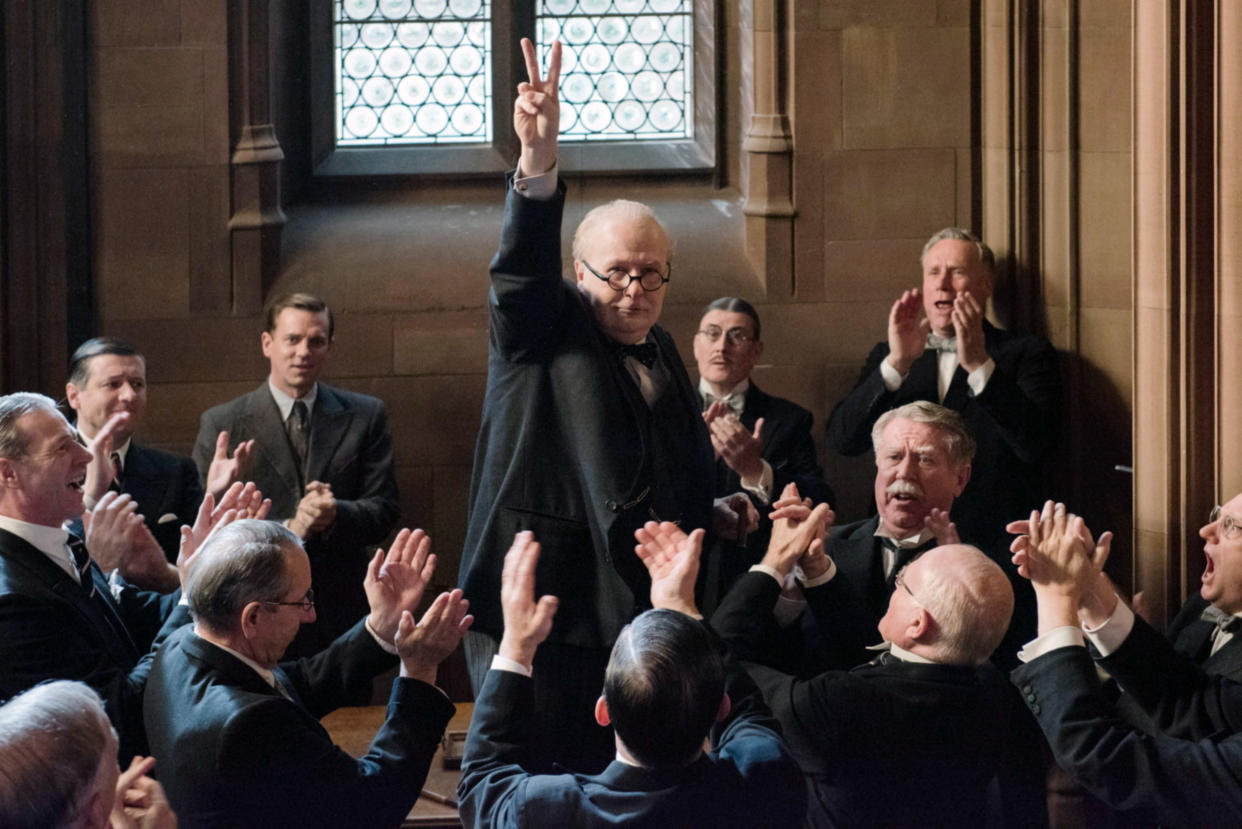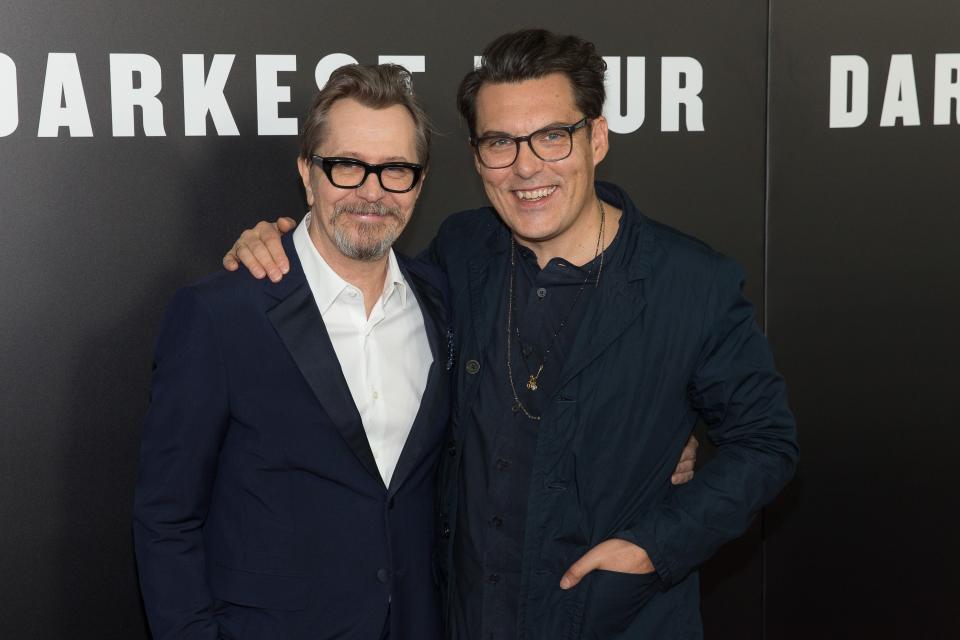'Darkest Hour': Gary Oldman and Joe Wright on how to apply Churchill to today's politics

Ever since the World War II drama Darkest Hour premiered on the festival circuit this fall, it’s been taken for granted that the Best Actor Oscar will almost certainly go to Gary Oldman for his immersive portrayal of Winston Churchill. As the veteran actor tells Yahoo Entertainment, though, it’s a role he spent years avoiding. “The ghosts of all the people who have played him before are very much there,” Oldman remarked. “I just thought, ‘What could I bring? What could I add?'”
He found that elusive aspect to Churchill’s larger-than-life persona in Anthony McCarten’s script for Darkest Hour, which narrows the focus specifically to those tense few weeks after Churchill inherited 10 Downing Street from Prime Minister Neville Chamberlin and faced the monumental choice of whether to make peace with Adolf Hitler’s ascendant Nazi regime or remain in the fight. “That was the story I thought was worth telling,” Oldman says now. “A lot of people don’t realize how close we came to some kind of living arrangement with Hitler. The Winston I saw in newsreel footage was someone on a mission to single-handedly eradicate fascism. It was that funny, cheeky, and energized Churchill that I thought I could offer up.”
At its heart, Darkest Hour is a portrait of leadership released at a time when the specific qualities that make a great leader are being hotly debated around the world, particularly in England and America. Still, director Joe Wright cautions against the film being viewed as a critique of any one person, be it Theresa May or Donald Trump. “I’ve tried not to get personal with the politics,” he says in a separate interview. “There’s a temptation while developing the screenplay to engage with certain issues, including Brexit and the American elections. Yet I don’t believe it’s the place of the storyteller to tell people how to think or how to vote. My job is to present scenarios that, hopefully, ask questions and let the audience come up with the answers themselves.”

Asked what made Churchill the right leader for his particular place and time, both Oldman and Wright point to his facility with language, as well as a fierce resolve. “There’s a joke that the British always tell, ‘If it wasn’t for Churchill, we’d all be speaking German,'” Oldman says. “There really is some truth to that: If we had capitulated, the swastika flag would have flown. Hitler would have had an army and a fleet matched by no one else on the planet. Churchill was very honest with the public. If you listen to his speech in the House of Commons, he talks about there being months of suffering. He’s not talking about food rationing; he’s talking about real, dire, human suffering.”
Wright indicates that he’d like to see some of that tenacity and honesty from the leaders who are hoping to provide resistance to the forces of bigotry and hatred now infecting politics around the world. “Churchill, for me, is an icon of that resistance. What’s interesting is that politicians from both sides of the chamber can claim him. I did a Q&A in Washington, D.C., recently with two congressmen — one Republican and one Democrat. Both of them claimed Churchill, and I think that’s a really interesting and exciting response.”
At the same time, both the director and his leading man acknowledge that their subject’s specific leadership skill set didn’t translate in all eras. Wright points to Churchill’s less-than-enlightened early views on women’s suffrage as well as India’s push for independence, and Oldman suggests that his “Victorian” outlook made him a man out of time in the post-World War II period. “If there’s any wartime leader I’d compare him to, it would be Lincoln,” he says. “But then we don’t know what Lincoln would have been like as a peacetime president because history decided that. We do know with Churchill: In the same way that Chamberlin was not the right man for war, Britain wanted a change [during peacetime]. As they say, ‘When the hour came, came the man.'”
Darkest Hour is now playing in limited release, and will expand to more theaters this weekend.
Read more from Yahoo Movies:


